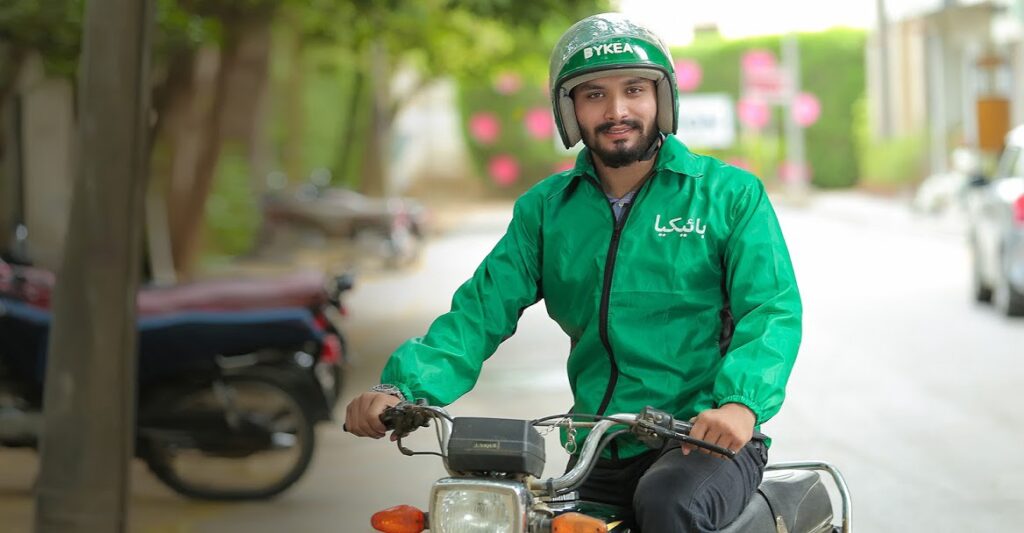With every passing day, we see the roads of some of the big cities of Pakistan flooding up with men riding bikes and wearing green, red or now newly introduced purple T-shirts. These men can be seen delivering, buying, transporting goods and even providing on-demand transport services.
In recent years, Pakistan has seen a BOOM of such startups which has indeed provided ease to the general public, however, these startups gained further popularity when the pandemic kicked in.
When Bykea was launched back in 2016 it was one of a kind, the company had done a commendable job in identifying a huge market gap and seizing the day as we know it. Back then it only provided motorcycle ride-hailing and parcel-delivery service, unlike Careem.
While it wouldn’t have been easy to compete with big sharks like Careem and Uber both of which provided a list of transport options to choose from as per one’s liking or requirement, Bykea just gave the option of a bike. But even then it managed to create a loyal customer base, you know why?
Simply because it had a rather viable and well-suited business model that catered appropriately to the Pakistani market. It had intelligently devised its strategy and had a clear perception of its target audience.
The company well understood that while Careem and Uber did provide a wide range of transport options, the first and foremost option for the Pakistani common man will always be a bike more so when provided at a much more affordable rate. From students to the working class, everyone uses a bike. It’s the national mode of transport as we know it, and this idea and strategy were what landed Bykea $13 million in Series B funding last year.
But were the intricately strategized mode of transport at a cheaper rate, the only leading factor that contributed to its growth? Absolutely not. It was one of the first few internet businesses that offered an interface in the Urdu language, this quite literally broke the language barrier, that could’ve otherwise kept it from reaching the common man both as a potential employee (rider) as well as the customer.
The three cities Bykea operates in are Karachi, Rawalpindi and Lahore and they have a combined population of 30 million people. Although public transportation is underserved in all three cities, these urban sanctuaries drive the economy of the 5th most populous country in the world. Motorbikes are the rails for distributors, couriers, e-commerce retailers and restaurants to move goods and collect receivables, almost entirely in cash in one of the least banked countries in the world.
With 17 million two-wheelers in Pakistan which are subjected to meet an even further increment; 4x the number of cars; Bykea offers millions of people the chance to earn an income by tapping into the tremendous opportunity in the country for both transport and hyperlocal commerce.
From looking at the stats of the past 5 years and the levels of growth the startup seemed to have reached recently, one would say they’ve succeeded in their mission. As their slogan says, “Har Zaroorat ki Sahoolat”, and I think you would agree to me that over the past few months they’ve managed to become a go-to platform for us Pakistanis.
With updates to their app that included the addition of categories like Classified, Cash transfer, Khareed Lao & Shops, they’ve managed to attract a fair share of the female customer base as well.
While many of these services are also provided by Careem but the recent incidents regarding Careem and their management that can be seen making rounds on social media has led to Bykea emerging as a local super-app that had started off laying its infrastructure using bike taxis, which is why their trajectory may be smoother than Careem’s when it comes to having a loyal and more trusting customer base.
